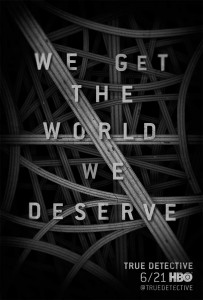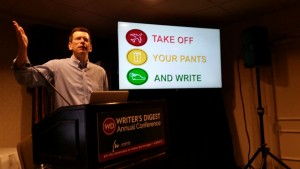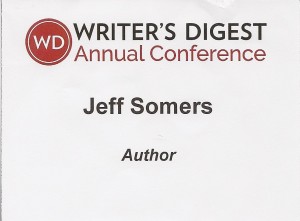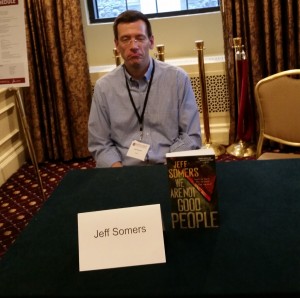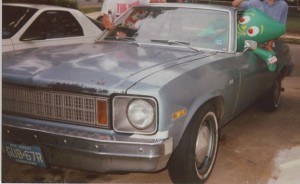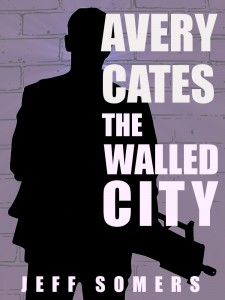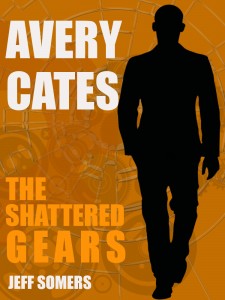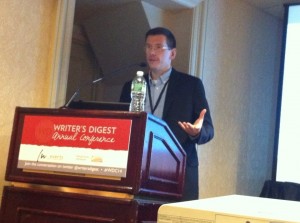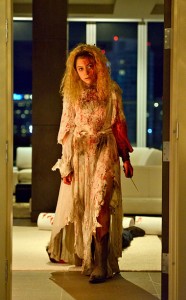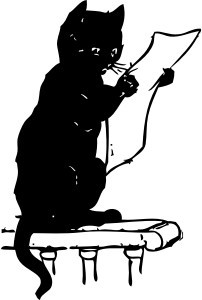Need to Explain “Show Don’t Tell”? Watch True Detective Season 2
So, True Detective season 2 has ended, and bow howdy it wasn’t very good. There are of course plenty of bad TV shows every year and few of them rate the amount of attention that TD2: The Failuring has gotten; this is largely a result of the outsize praise season 1 received, of course. After “Time is a flat circle” briefly made up 90% of all Internet traffic, the second season was doomed to disappoint. It’s just the scale of the disappointment that’s surprising.
Because True Detective season 2 is complicated. It was terrible, don’t get me wrong, but also prestige television. It was pretty poorly written, but also delivered at least a handful of well-written lines. The acting was all over the place, and the direction was lackluster, and the plot overly complex with a weak payoff, but there were still tantalizing moments when it seemed poised to transcend these issues and become, if not great, at least watchable.
Ultimately the problem was a simple one, a fundamental one, a problem all writers struggle with: How do you handle showing and telling? And how do you ensure you earn your characters’ fates? That’s where TD2: Electric Mustache Review went wrong. It told. It told everything in an effort to be cagey, and it told it badly.
Vince in the Basement
Vince Vaughn’s character Frank Semyon is the perfect ur-example here. In an early episode, Frank had a soliloquy about his father locking him in the basement as punishment and then getting drunk and arrested, leaving little Frank to fend off rats in the dark for several days, starving. Vaughn delivers the speech with a blank-faced lack of affect that might have been poor acting or might have been batshit direction, but either way the speech lands flat because it’s all Tell and no Show. People think Telling is when you write something like
FRANK: I am a broken man because my father was a drunk who abused me.
But the fact is, Telling isn’t so much about declarative statements that are better left for the reader/viewer to figure out on their own. It’s about subtlety. It’s about understanding how real human beings act and speak. Who in the world lies in bed with their partner in the morning, staring up at water stains in the ceiling, and tells a five minute story about being locked in a basement by their father for no other reason than to let the invisible audience know these crucial details about themselves?
It’s also Telling (and bad writing) because it’s meant to stand alone. We learn very, very little about Frank (or the other characters) over the course of the show, but specific events in their past are supposed to stand in for actual knowledge. Frank and his basement story. Ani and her rage and her knives and her promiscuity. Ray and his wife’s rape and the murder of her supposed rapist. Paul and his closeted homosexuality and his time with the military contractors. We never really get much else about these people: These single events define them absolutely (and are often only vaguely outlined — we know Paul is troubled by his experiences “in the desert,” but we have no idea why or what he did). Frank’s basement story is Telling because it is supposed to be everything we need to know about Frank: He was locked in a basement and fought off rats in the dark, and therefore he is Frank Semyon.
Yeah, it makes no sense. Telling is like that.
And then Frank’s death is like a cluster bomb of Telling. As he staggers through the desert, bleeding from a belly wound after a final betrayal, a few million in diamonds in his pockets and vultures literally following his trail of blood, it’s almost a great scene. Frank came alive a little in the final 2 episodes, and his reversion into a scrappy gangster who takes down his enemies and negotiates his way — almost — to freedom was kind of fun. And watching him refuse to give up, watching him force himself to stagger onward despite the clear odds, could have been affecting if his character had a little more development and backstory before this moment.
Instead, as if the show was fucking with us, it chooses instead to Tell us again, using the worst mechanics of any freshman-level writing workshop: The mysterious hallucinations with no context. We get his father, who has never been personified before in the show, abusing him in a generic way, his speech the sort of thing you’ll find in any piece of crap about an abusive, one-note father. We get a group of black kids taunting him for being tall and white and gawky. We get a man Frank presumably killed over a debt, begging for his life. This all sketches out a potentially interesting story of how Frank Semyon went from terrified kid to small-time gangster, but it does so in the final five fucking minutes of the character’s story, in a rushed, awkward sequence that treated Frank like a hero, when he isn’t one. Instead of last-minute hallucinations, we could have gotten Frank’s backstory over the course of the season, instead of the endless stilted conversations about a land deal no one gave a shit about.What really hurts is that in the final moments of the scene, when Frank is dead and yet having a sort of Owl Creek Bridge moment, Vaughn stops limping and grimacing and for thirty seconds he turns on a Charm Ray so powerful you almost forgive him. Those thirty seconds as Frank realizes he’s dead are great, and it demonstrates the possibilities.
It demonstrates what they could have Showed us.

